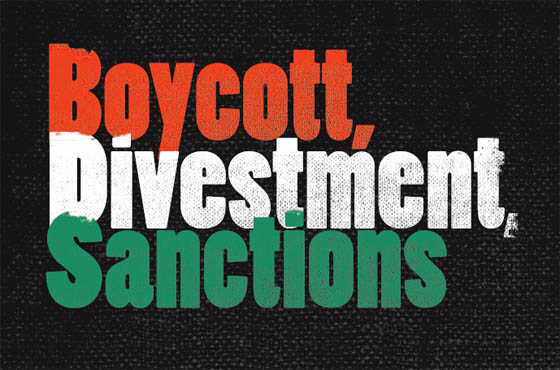Trillion-Dollar Rebuff Spurs African Road Trip: Israel Markets
Jun 16 2014 / 9:32 pm
By Jonathan Ferziger.
Bloomberg BusinessWeek – Israel’s government is leading 50 executives this week on a tour of Africa in a bid to diversify business interests amid the threat of international boycotts and irritation over new corporate taxes.
Foreign Minister Avigdor Liberman is seeking deals in the world’s fastest-growing economies for companies including defense contractor Elbit Systems Ltd. (ESLT), irrigation equipment maker Netafim Ltd. and billionaire Idan Ofer’s Israel Chemicals Ltd. (ICL) Ofer was in Ethiopia last month to inspect his latest investment in a $642 million potash mining project. The company is looking to turn around the worst stock return this year on the Tel Aviv benchmark stock index.
Israeli companies and politicians are “sensitive to the issue of isolation,” said Terence Klingman, head of research at Psagot Investment House Ltd. in Tel Aviv. There’s a push to spread the export base to “countries that are more agnostic about the state of Israeli-Palestinian relations,” he said.
International funds that manage more than $1 trillion have divested from Israeli companies as Palestinians have turned to economic sanctions in their campaign to end Israel’s 47-year-old occupation of the West Bank. About 350,000 Israelis live in settlements there amid 2.3 million Palestinians.
Norway’s $880 billion sovereign wealth fund, the world’s biggest, excluded Africa-Israel Investments Ltd. from its portfolio because the Tel Aviv-based company has construction and real estate activities in Jewish West Bank settlements. PGGM, the Dutch asset manager with $200 billion, rebuffed Bank Hapoalim Ltd. (POLI) and other Israeli lenders last year. U.S. Secretary of State John Kerry said Israel risked “being an apartheid state” in comments he later apologized for.
Non-Traditional Partners
Attempts to “boycott, divest and sanction Israel” are driving business from traditional trading partners in the U.S. and Europe toward Africa, Asia and Latin America, Prime Minister Benjamin Netanyahu said at the annual Washington conference in March of the America-Israel Public Affairs Committee.
Tel Aviv-based Israel Chemicals was among the companies targeted by the Israel Divestment Campaign in an effort to get the California Public Employeesâ Retirement System to sell off its shares in 2010. The campaign failed. Israel Chemicals, which harvests minerals from the Dead Sea, declined to comment on the sanctions campaign.
The company said it will seek more international ventures and may reduce domestic operations when it bought a $23 million stake in Ethiopia’s Danakhil mine being developed by Toronto-based Allana Potash Corp. (AAA) Last year, Potash Corp.(POT:US) of Saskatchewan suspended a proposed takeover of Israel Chemicals opposed by Finance Minister Yair Lapid.
Worst Performer
Israel Chemicals shares have tumbled 26 percent in the past 12 months, the worst among 25 stocks on the Tel Aviv index. They were down 0.2 percent at 29.50 shekels at 12:24 p.m. in Tel Aviv. The stock has been hurt by falling potash prices and the government’s review of its royalties policy. A state panel on May 18 recommended a new windfall tax of 42 percent on all quarried materials.
Ofer, worth an estimated $5.4 billion by the Bloomberg Billionaires Index, isn’t the first wealthy Israeli to invest in Africa. Dan Gertler, whose fortune is estimated at $2.5 billion, owns stakes in copper, iron, manganese and cobalt mines in the Democratic Republic of Congo, complementing his diamond trading business. Beny Steinmetz, whose wealth is estimated at $4.1 billion, is the target of a corruption investigation into his iron-mining activities in Guinea. He has denied wrongdoing.
Exports Quadruple
Israel’s sub-Saharan exports amounted to $1.4 billion last year, almost four times the total of $374 million in 2003, said Shauli Katznelson, who directs the economic division at the Israel Institute for Export and International Cooperation in Tel Aviv.
While the World Bank has cut its growth estimate for sub-Saharan Africa this year to 4.7 percent from 5.3 percent, and for 2015 to 5.1 percent from 5.4 percent, Katznelson sees good prospects for Israeli businesses. Of the region’s 52 countries, Nigeria, Angola, Kenya, Tanzania, Ghana and Ethiopia are likely to be most fruitful, he said.
“When you look at the map, you see growth in the sub-Saharan countries that is even greater than in Asia and that offers a great deal of opportunity for Israeli companies,” Katznelson said.
—–
To contact the reporter on this story: Jonathan Ferziger in Tel Aviv at jferziger@bloomberg.net
To contact the editors responsible for this story: Alaa Shahine at asalha@bloomberg.net Amy Teibel, Gwen Ackerman

